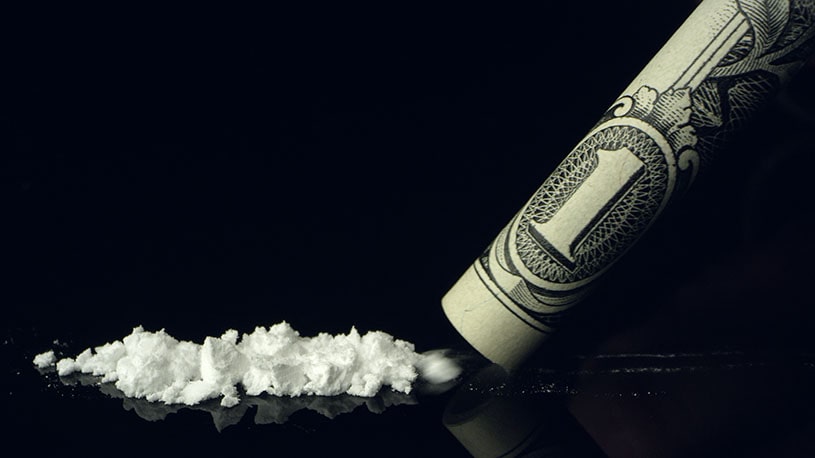
Bupropion, which is Wellbutrin generic, is an aminoketone medication that is primarily used as a treatment of major depressive disorder and smoking cessation aid. Belonging to the drug class norepinephrine-dopamine reuptake inhibitors, this medication works by increasing the levels of those neurotransmitters to prevent depression.
Table Of Contents:
While the use of Bupropion can be helpful for individuals with depressive symptoms, overdosing on Bupropion can happen accidentally. In a 2008 report by Toxicologists from the United States, it was found out that 0.5% of reported Bupropion overdose led to death, and patients who died used the sustained release form of Bupropion. Moreover, there are also cases of snorting Bupropion and this is dangerous as well. Although this is uncommon, seizures would occur and the need for an antidote is required.
In this article, information about the causes, signs and symptoms, and dangers of Wellbutrin overdose will be provided.
Can You Overdose On Wellbutrin?
For those who are asking, can you overdose on Wellbutrin? The answer is yes. It is possible for an individual to overdose on Wellbutrin, either intentional or accidental OD. The most dangerous part is that in the absence of immediate treatment, death could occur. According to the FDA, patients who have used 30 g of this medication are prone to have OD, and ingesting more than this dose can have detrimental health effects. According to the Journal of the American Academy of Pediatrics, being exposed to Bupropion in whatever form of administration, such as extended release and sustained release, are associated with death and those who attempt to self-harm are at a higher risk of this overdose death. In this case study, there were 3,513 patients who overdosed on Bupropion and 8 people (0.23%) died, the other 58,1 % had serious outcomes like seizures, hallucinations, cardiovascular disorders.

The Causes Of Bupropion Overdose
Wellbutrin overdose can be extremely harmful to a person, possibly leading to the development of symptoms that put that individual’s life at risk. Understanding possible causes that may lead to a person achieving overdose is crucial. Wellbutrin overdose symptoms may develop in various scenarios. In some cases, the OD may occur accidentally, while in other cases it may instead be on purpose.
Below is information about the possible causes of Bupropion overdose:
- High Dosage. There are cases where a person follows the instructions provided to them by a physician and still end up experiencing symptoms associated with overdose even if the dose is just low. Since overdose amounts may vary from one individual to another, some people can find that they are more sensitive to the drug and start to experience adverse reactions that are generally associated with overdose.
- Drug Misuse And Abuse. Bupropion might be an effective drug for treating depression, or smoking cessation, but too many doses of Bupropion can be life-threatening. Abuse of this medication is also possible. Individuals who abuse the drug by taking many doses of it may start to experience withdrawal symptoms of Wellbutrin when they stop. At the same time, tolerance develops. The person eventually takes more of the medication, which can ultimately contribute to an overdose.
- Mixing Substances. There are cases when Bupropion may be combined with other substances as well. Alcohol is a common substance that people tend to use even while they are undergoing treatment for depression with a drug like Bupropion. When Wellbutrin XL and alcohol are mixed, there is a higher risk of side effects, and the person is more likely to experience overloading of the active chemicals in their body.
Take note that taking many doses of this drug is not the only suspect for overdose. The forms of Bupropion and way of administration may also be a reason for OD. For example, snorting Bupropion is considered fatal. For these reasons, anyone who is seen to be misusing this drug must seek emergency medical care in order to avoid fatal drug OD.
Signs And Symptoms Of Wellbutrin Overdose
It is a must for everyone to know the signs and symptoms of Wellbutrin overdose especially for those who have someone in their home using this drug for medicinal purposes.
As this drug is prone to be abused, the following signs and symptoms must be noted:
- Neurological manifestations – These include agitation, hallucination, confusion, loss of consciousness, insensibility, and coma.
- Cardiovascular manifestations – The most common cardiovascular manifestations include sinus tachycardia, hypertension, and arrhythmia. In case the patient is not treated immediately within 24 hours, cardiac arrest can be observed.
- Musculoskeletal manifestations – According to Doctors from the United Kingdom, the most common sign of Bupropion overdose is seizure (24% prevalence rate) and this seizure usually occurs 14 hours after the last dose. Moreover, a tonic-clonic type of seizure is the one that is usually observed. Other musculoskeletal manifestations include tremor, muscle rigidity, and rhabdomyolysis.
- Gastrointestinal manifestations – These include nausea and vomiting and may be observed within 4 hours after the last dose.
- Respiratory manifestations – Oxygen levels may drop when a patient overdose on Bupropion. Hyperventilation and upper respiratory complaints are also observed.
- Autonomic manifestations – According to the FDA, high fever is also associated with Bupropion overdose. When left untreated, neuronal damage may occur.
Take note that treatment for Wellbutrin overdose is largely supportive as there is no antidote yet. If anyone is experiencing an overdose on this drug, especially seizures (the hallmark of toxicity), immediately contact the nearest poison control center in order to avoid fatality and other dangerous health events.
Dangers Of Overdose On Wellbutrin
One major danger Wellbutrin overdose may cause is that it can alter the mental health status of the patient. In fact, according to Doctors from Turkey, patients who had overdosed on Bupropion will have to undergo hemodialysis. Further, according to a 2007 case report on NCBI, it was found that Bupropion nasal insufflation increases the risk of seizures. There is also a chance that an individual might develop epileptic seizures after snorting Bupropion.
Because of this, professional medical treatment is needed to help a person reduce the risk of the life-threatening complications that may occur following an overdose on Wellbutrin. Individuals abusing Bupropion are at an elevated risk, but with a thoroughly planned rehabilitation program, a person would be able to stop using the medication without experiencing significant Wellbutrin adverse effects or withdrawal symptoms.
In case of emergency, immediately contact the nearest poison control center in order to avoid fatality and other dangerous health events. Due to the possible risks to the health of some patients a medical professional can prescribe alternative drugs, such as Wellbutrin vs Paxil.
Snorting Wellbutrin
Although snorting Wellbutrin is uncommon (3%), it is still extremely dangerous as this may cause significant harm to mucous membranes and common health. Bupropion medication is known to have addictive potential. So, if someone is sniffing it, there is an increased risk that this person will develop an addiction to bupropion. In this section, information about the dangers of snorting Wellbutrin and who are at risk to do this will be provided.
Side Effects And Dangers Associated With Snorting Wellbutrin
If patients snort Wellbutrin pills by crushing them rather than taking them orally, it might be due to addiction issues or they are attempting to use the drug recreationally. Either the two could lead to financial burdens, loss of friends, and other related problems. Moreover, doing these increases the chance for these patients to be prone to several hazards.
Some of the common intranasal health risks include:
- Nasal membrane damages
- Internal irritation starting from the nose as
- Accumulation of crust in the nose cavity
- Increased risk of Wellbutrin XL overdose
Insufflation is considered a route of administration for drugs. However, doing this at home or without the supervision of a medical professional is extremely dangerous to one’s health.
Below is information about the respiratory dangers of snorting Wellbutrin or any other powdered drug:
- Asthma
- Bronchospasm
- Reduced breathing abilities
- Eosinophilic Lung Disease (Lung infection)
Furthermore, snorting Wellbutrin does not only focus on the nasal passages and respiratory system. Instead, it may also cause physical changes and dangers.
Some of these include the following:
- Extreme Wellbutrin hair loss (alopecia)
- Insomnia
- Agitation
- Changes in appetite
It is noteworthy that changes in appetite is a common side effect of the drug, as Wellbutrin and weight loss relation is well documented in scientific studies. Anyone who is snorting Wellbutrin should discontinue in order to avoid the possible health consequences of the drug to the health of the user. This will not only help the users avoid the short-term effects but also the dangers after such as cardiovascular problems, seizure, potential lifetime hemodialysis, as well as Wellbutrin and sex drive effects. In case of emergency, immediately contact the nearest poison control center in order to avoid fatality and other dangerous health events.

At-Risk Groups: Why Individuals Snort Wellbutrin
Generally, there are three main reasons why individuals snort Wellbutrin. The first one is because these individuals have drug addiction and abuse issues, the second one is that these individuals are trying to use the drug recreationally, and the third one is because these individuals are intentionally overdosing themselves. Take note that any of these three is extremely dangerous to one’s health and should never be done anytime and anywhere. Furthermore, adolescents (ages 10-19) and patients with previous substance abuse are more prone to snort Wellbutrin.
Preventing Bupropion Overdose
The best way to prevent Wellbutrin overdose is by diligently following the doctor’s instructions and to be aware of the question how long does Wellbutrin stay in your system. A patient who is prescribed with this drug should only take the dose recommended by a medical professional. If possible, properly label the other medications being taken by a patient in order to avoid interaction which can increase the risk for OD. Additionally, patients using this drug should never share this medication with other people, including friends and relatives.
First Aid For Bupropion Overdose
When a person notices signs related to Wellbutrin overdose, the first thing that needs to be done is to call 911. It is vital that detailed information is provided to ensure 911 understands where services like a paramedic may be required to assist the patient. The individual will be asked some questions by the staff on duty during the call to 911, as this helps the staff dispatch the right medical professionals and ensure appropriate equipment and other medical items are taken to the patient’s location.
Once all details have been provided, it is always a good idea for a person to remain on the phone with the medical staff. These individuals are trained to provide patients in need of medical services with guidance and ensure they understand what to expect and provide any details that should be given to the paramedics once they arrive. While awaiting paramedics to arrive, it is advised that a person tries to remain as calm as possible.
Following a pickup by the paramedics, a person will be taken to an emergency department for prompt treatment. The first step is for a physician to assess the person. Once an assessment has been conducted, detoxification would be required. The most common detoxification procedure would be an oral administration of activated charcoal. The treatment process after these steps have been conducted depends on the physician’s findings and the vitals of the person who has been admitted.
Find Drug Rehabilitation Centers Near You Anywhere In the US
Addiction Resource team has compiled an extensive list of the top drug rehabilitation facilities around the country. Use our locator tool to find the best centers near you.
Page Sources
- Akdemir, H. U., Çalışkan, F., Duran, L., Katı, C., Güngörer, B., & Ocak, M. (2014). Charcoal hemoperfusion in bupropion overdose. Journal of the Formosan Medical Association, 113(10), 754-755.
- Amira, G. (2020). Misuse of prescription and over-the-counter drugs to obtain illicit highs: how pharmacists can prevent abuse. The Pharmaceutical Journal, 305(7943).
- Hasan Kara, A. A., Bayır, A., Acar, D., İstanbulluoğlu, R., & Değirmenci, S. (2013). Seizures after overdoses of bupropion intake. Balkan medical journal, 30(2), 248.
- Hill, S., Sikand, H., & Lee, J. (2007). A case report of seizure induced by bupropion nasal insufflation. Primary care companion to the Journal of clinical psychiatry, 9(1), 67.
- Jepsen, F., Matthews, J., & Andrews, F. J. (2003). Sustained release bupropion overdose: an important cause of prolonged symptoms after an overdose. Emergency Medicine Journal, 20(6), 560-561.
- Lewis, J. C., Sutter, M. E., Albertson, T. E., Owen, K. P., & Ford, J. B. (2014). An 11-year review of bupropion insufflation exposures in adults reported to the California Poison Control System. Clinical Toxicology, 52(9), 969-972.
- Mendonça, C., Rocha, S., Meireles, J., Pestana, P., Teixeira, C., & Aragão, I. (2015). Sustained-release bupropion overdose: A case report. International Journal of Medical and Pharmaceutical Case Reports, 3(2), 38-43.
- McCormick, J. (2002). Recreational bupropion abuse in a teenager. British journal of clinical pharmacology, 53(2), 214.
- Overberg, A., Morton, S., Wagner, E., & Froberg, B. (2019). Toxicity of bupropion overdose compared with selective serotonin reuptake inhibitors. Pediatrics, 144(2).
- Schifano, F., & Chiappini, S. (2018). Is there a potential of misuse for venlafaxine and bupropion?. Frontiers in pharmacology, 9, 239.
- Sheridan, D. C., Lin, A., & Zane Horowitz, B. (2018). Suicidal bupropion ingestions in adolescents: increased morbidity compared with other antidepressants. Clinical toxicology, 56(5), 360-364.
- Spiller, H. A., Bottei, E., & Kalin, L. (2008). Fatal bupropion overdose with post mortem blood concentrations. Forensic science, medicine, and pathology, 4(1), 47-50.
- Stall, N., Godwin, J., & Juurlink, D. (2014). Bupropion abuse and overdose. CMAJ, 186(13), 1015-1015.
- Sutton, J. A., & Leatherman, J. W. (2020). Pseudo Brain Death After Snorting Bupropion. In A43. CRITICAL CARE CASE REPORTS: TOXICOLOGY AND POISONINGS (pp. A1700-A1700). American Thoracic Society.


 Reviewed by:
Reviewed by:  Written by:
Written by: 

 FindTreatment.gov
FindTreatment.gov